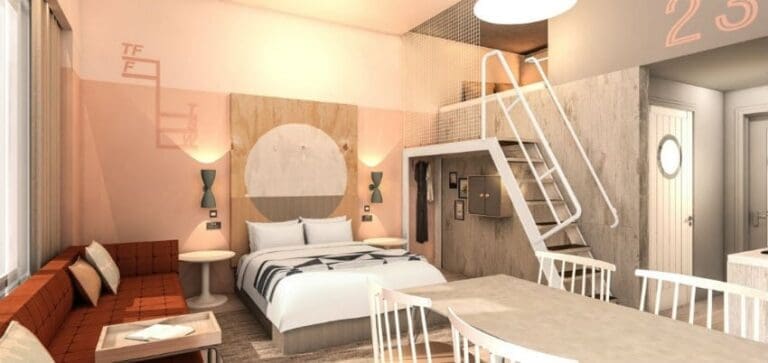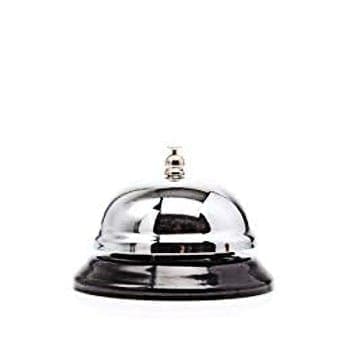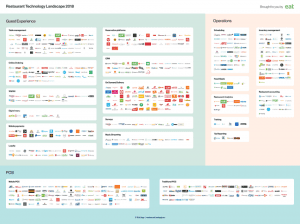It’s often said nowadays that the sharing economy, and more specifically the rise of alternate lodging providers, has changed the way travelers think. Guests are more discerning than ever before, savvy to the wide breadth of options available via the Internet, attuned to those brands that offer a differentiated or personalized experience and always on the lookout for a sense of local adventurism.

But have we really changed all that much, or have we just been silently yearning for a company like Airbnb to come along and offer us accommodations that actually address our needs? Clearly, with its millions of listings and billions in revenues, the platform is doing something right, and with this unprecedented growth I’d argue in favour of this ‘repressed longing’ over some collective mental shift that’s all happened in the past decade.
Regardless of how we got here, the ball is now in the hotelier’s court to reinvent the hotel experience and give guests what they crave if we are to survive.
While the alternate lodging market offers some benefits to travelers that are not easily matched by traditional properties – such as unique spaces embedded in the community and full kitchens – there are also many prominent drawbacks to these types of accommodations that might drive many customers to stick with a hotel. Perhaps then there is an opportunity for hoteliers to address some of the modern traveler’s desires while keeping the current advantages fully in play.
One such brand that strives to reach this happy medium is room2 which is launching its new ‘hometel’ product in June with a pilot opening in Southampton, England. As a cute portmanteau between ‘home’ and ‘hotel’, a hometel embodies the standard hotel features that you would expect such as onsite security, daily housekeeping, in-room coffee and gym facilities while also appeasing the home sharing crowd with kitchens, flexible communal spaces, laundry and split-level mezzanine bedrooms.
To shed some more light on how room2’s new launch compares to both a traditional hotel and such home sharing platforms like Airbnb, I reached out to Robert Godwin, Room2’s founder and managing director for a quick interview.
How does room2 compare with Airbnb?
room2 offers you all the flexibility, value and comfort of an Airbnb, but with the added safety, security and services of a hotel. For instance, you can have your room serviced daily; our team are on hand 24/7 to greet guests and deal with any issues or questions. At the same time, you can keep costs down by cooking in your room with the fully equipped kitchen and using our pantry for last minute supplies.
What makes you different from the newer Airbnb Plus product?
Airbnb Plus is a great product offering, but where room2 differs is the fact that it brings together a collection of likeminded travelers and guests, creating a unique and inspiring environment to work, relax or entertain via the Living Room. Located on the ground floor and open to both guests and locals, it houses a bar, café with a selection of breakfast options, a pantry with all day snacks and plenty of ingredients to enable guests to cook in their rooms, plus free WiFi and comfortable seating.
How many properties do you have?
The room2 concept was first developed in the Hammersmith district of London in mid-2016, and room2 Southampton launching in June 2018 is the first full-fledged hometel. We currently use the Hammersmith property to test and develop a lot of our ideas, and we have further plans to expand to a number of locations around the UK.
What do the neighbors think of these mini pop-up hotels?
We obviously go through an extensive research and planning proposal process for any of our developments to make sure that the location is well-suited for our properties and that the community around us will benefit from our presence. We like to think that with our open and welcoming nature, combined with our forward-thinking approach to design, we certainly add value to the communities and buildings we occupy or develop.
How is the concept a breakthrough in the marketplace?
Sure, there are other players out there in the marketplace who fall between the apartment and hotel space. But what we’ve seen so far is that they still tend to be very cookie-cutter in their approach, and lack well-thought-out designs that consider the guests’ needs first. As such, you feel like just another number. We’ve created a space and an environment that makes you feel welcome, comfortable and at home. There’s no overbearing rules or restrictions; we give guests the platform to create their own experience without interrupting their normal routines and habits. In addition, we’re developing some unique and innovative services, such as 24-hour stays, external food delivery and ordering, mobile keyless check-in, and long stay lockers.
Obviously this kind of hybrid property is only possible with a new build, but what’s interesting to note is that more hotels are starting to incorporate the ‘living room’ concept. The idea here is that a hotel transforms what would be a lobby bar or underutilized business center into a social space that augments the overall guest experience through heightened interactions.
While a living room does indeed require some overhead to properly renovate, you should also note that what nudges guests to use it are complimentary services including WiFi, reading materials, games and often booze, all of which can be built into the nightly rate. Key, though, is that hoteliers are finding ways to creatively meet Airbnb and other alternate lodging providers head on without compromising their core products. So, how will you adapt?
This article may not be reproduced without the expressed permission of the author.


















